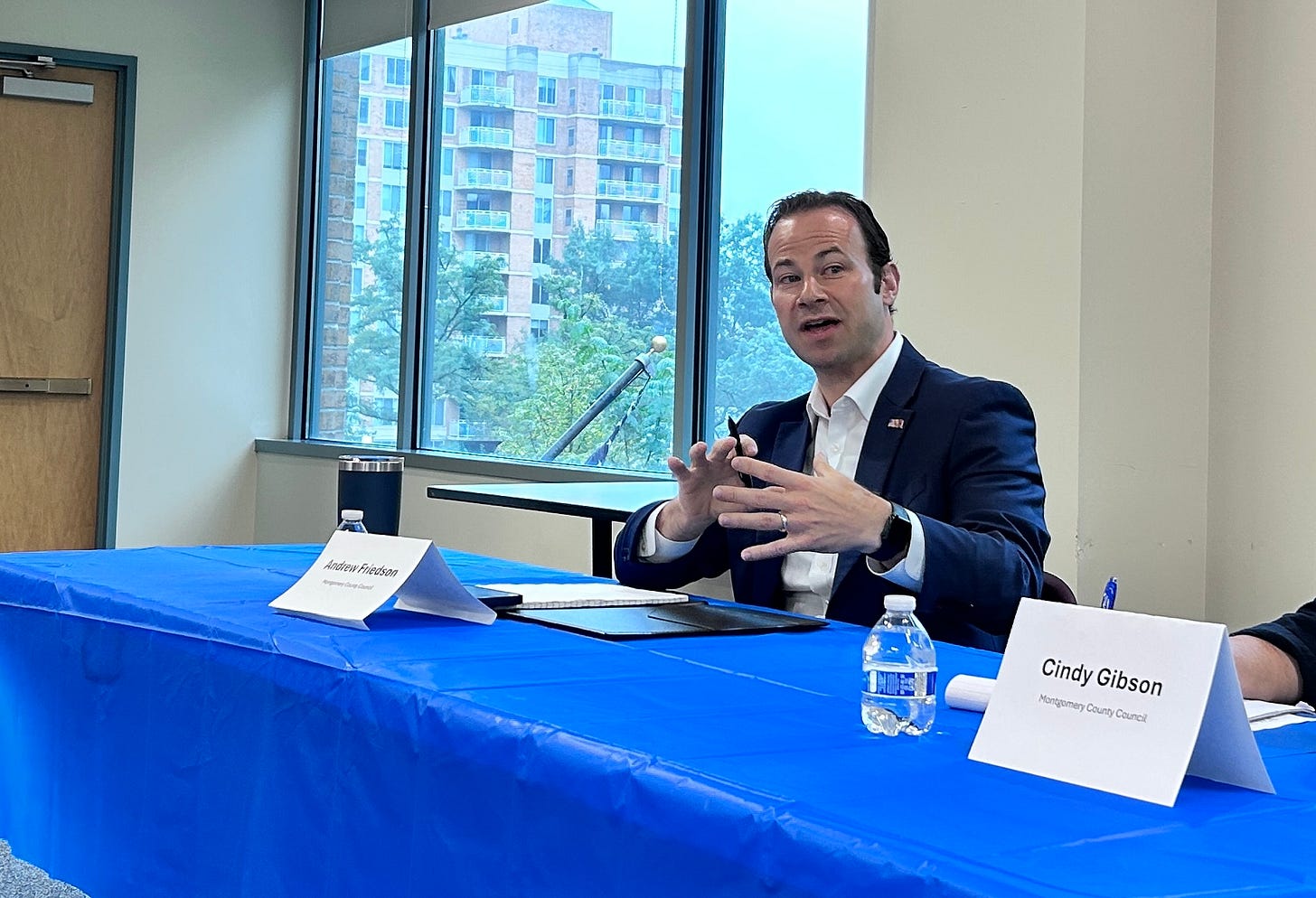Don’t Stop — Friedson Engages Community Leaders
The signals I heard from attendees
Montgomery County Council Member Andrew Friedson showed what effective local leadership looks like this morning. At a meeting he convened for community leaders, he brought people together, listened to their concerns, and started shaping consensus on the issues that matter most.

A few thought lines stood out for me:
Uncertainty. It’s Montgomery County — you can’t gather residents without housing and zoning dominating the conversation. Fair enough. But today, what struck me was the “what ifs.” People are getting nervous.
One resident made a sharp point: while the county debates affordable housing and property taxes, thousands of federal employees and contractors are losing — or about to lose — their jobs. That changes the picture. Housing may soon become “affordable” for reasons no one wants.
Andrew acknowledged the concern and stressed the county’s efforts to secure funding and keep services flowing. A solid answer for the moment. But if large numbers of residents shift from “affluent” to “unemployed,” the communications landscape changes overnight. Focus will snap from “what’s good for the community” to “where’s mine?”
When stability erodes, messaging has to set the tone, not chase the mood.
Trust in data. Someone asked whether the county’s planning data is even “valid.” It was almost a throwaway line — and it chilled me. Without trust in government data, even locally, consensus collapses. Andrew pointed to the planning board’s expertise and process — and he’s right. But the bigger challenge is clear: the county needs to restore confidence before skepticism takes root.
Once trust is gone, it’s nearly impossible to rebuild. You don’t just lose consensus — you lose gravity.
Data centers. This was the most forward-looking exchange. Andrew noted that Montgomery County’s fuel-energy tax has pushed data centers across the river, where Loudoun County now pulls 30–40% of its revenue from them. He’s right that Montgomery should explore its options. I’d like to see us go even further — building education pipelines, streamlining permitting, modernizing tax structures, and signaling that Montgomery is open for this business.
Every year we hesitate, Northern Virginia widens the gap — and the tax base we’re forfeiting grows. That’s not strategy, that’s drift.
Data centers aren’t a side issue. They will define whether Montgomery can fund schools, roads, and services in the coming decades. Pretending otherwise is a mistake — and the longer we wait, the higher the cost.
Andrew deserves credit not only for tackling these questions but for creating the forum where they can be raised — and where solutions can start to take shape. Don’t stop.


